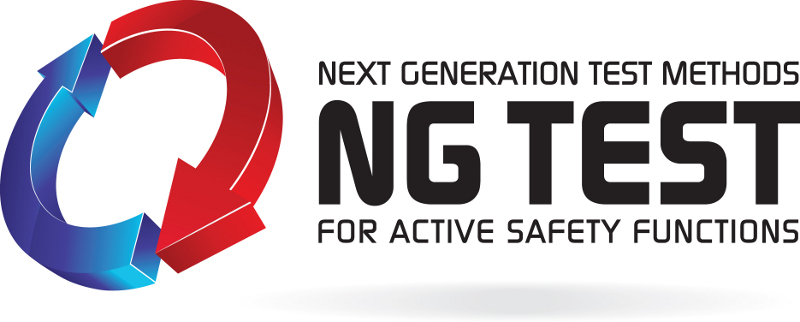FFI NG-TEST
Next Generation Test Methods for Active Safety Functions
| FFI NG-TEST | |
| Project start: | |
|---|---|
| 1 January 2012 | |
| Project end: | |
| 31 December 2014 | |
| More info (PDF): | |
| [[media: | pdf]] | |
| Contact: | |
| Roland Philippsen | |
| Application Area: | |
| Intelligent Vehicles | |
Involved internal personnel
| |
Involved external personnel
| |
Involved partners
| |
-
| |
Abstract
The project is funded by Vinnova under the Strategic Vehicle Research Partnership (FFI). It will run for three years and involves Volvo AB, SP Technical Research Institute, Volvo Car Corporation, Autoliv, VTI, Chalmers, and Halmstad. Our contributions will be in the domain of requirement modeling as well as validation and verification of the entire testing framework.
Extended Abstract
Recently, active safety systems have started to appear in production automobiles, and they will be a significant factor in eliminating road accidents with serious or fatal outcome. As opposed to passive safety systems such as seat belts and ABS, which protect mainly the occupants of vehicles, vulnerable road users can only be protected by active safety systems such as collision mitigation by automatic emergency braking. Currently, one of the major bottlenecks for widespread deployment of active safety systems is the challenge of validating and verifying them. Even though there are some isolated testing tools and methodologies, there is no common framework and the individual tools are of rather limited applicability.
The objective of the NG-TEST project is to establish a chain of tools that are integrated into a streamlined validation and verification framework for the upcoming active safety systems. This framework will cover steps from the conceptual design phase all the way to operational tests, and it is a central ingredient for maintaining the safety-related forerunner position of the Swedish automotive industry. Achieving this vision presents a range of challenges which are addressed by the expertise present in the project consortium:
- Volvo AB has been a provider of transportation related products and services for more than 80 years. They coordinate the project and lead the work on specification and scope, functional and situational models, verification and validation of the test process itself, as well as dissemination.
- SP Technical Research Institute is Sweden's largest single-source resource for vehicle manufacturers and their suppliers. They lead the work on analyzing the state of the art.
- Volvo Car Corporation creates premium cars with strong focus on safety, environment, design, and quality. They lead the work on virtual environments.
- Autoliv is a Fortune 500 company and worldwide leader in automotive safety systems. They lead the work on automated test track scenarios and equipment.
- VTI, the Swedish National Road and Transport Research Institute, is independent and internationally prominent, with over 40 years of experience with driving simulator technology. They lead the work on augmented reality with driver in the loop.
- Chalmers is a highly progressive University in Gothenburg. Their division of Vehicle Engineering and Autonomous Systems will create a model scale test track as one of the text environments.
- Halmstad University is a popular seat of learning. Its internationally renowned research environment on Embedded and Intelligent Systems will work on an integrated validation chain that is tailored to the early stages of product design and development.
The NG-TEST project will focus on several specific scenarios as concrete examples where active safety systems will play a crucial role, such as on-coming traffic, crossing traffic, vulnerable road users, and run-off-road. The validation and verification framework will rely as much as possible on virtual methods, in order to be more efficient in terms of time and cost, while remaining fully grounded in physical tests. Project results will be leveraged in the processes at the participating companies, showcased to the public, and shared with the international community via seminars and scientific publications.
The project started on January 1, 2012, and will run for three years with a total budget of SEK 54'500'000 that is co-funded by Sweden's Innovation Agency (VINNOVA) under the Strategic Vehicle Research partnership (FFI) and the project consortium.
